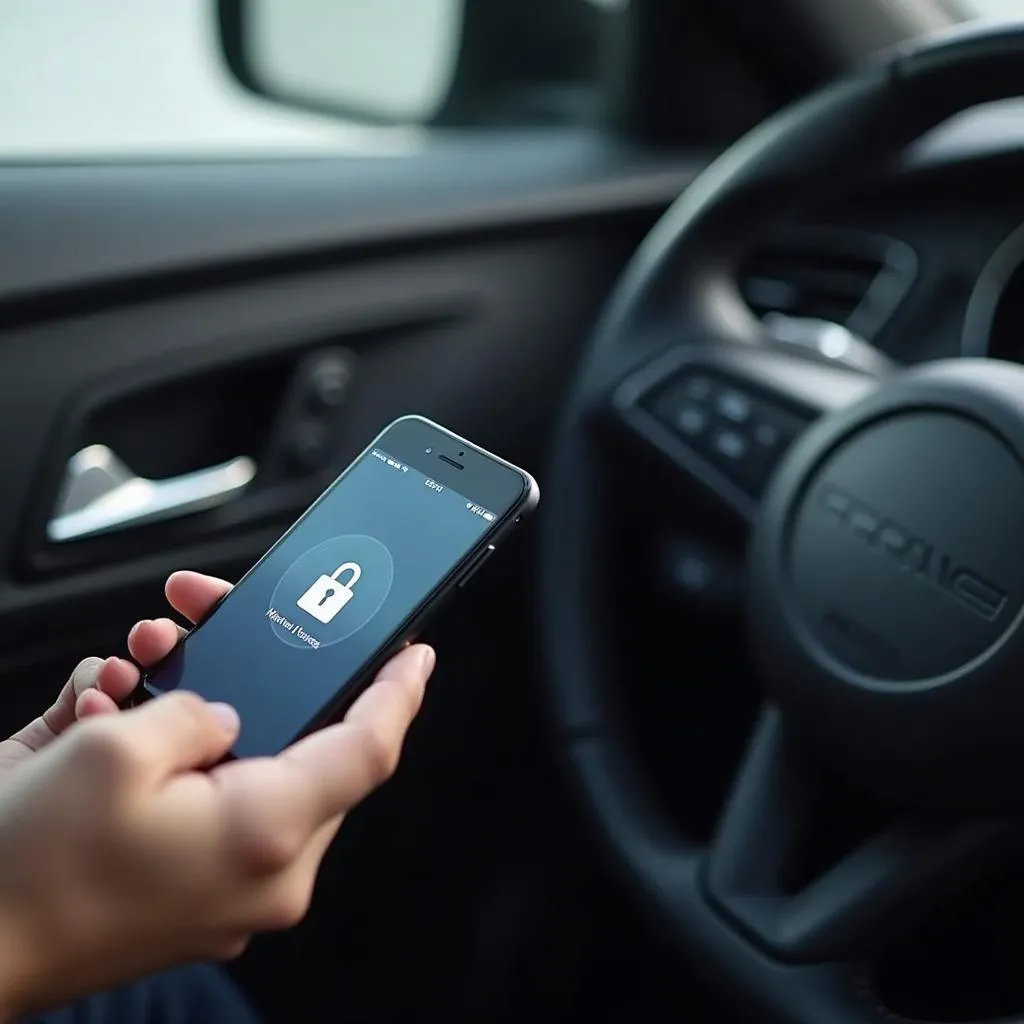A new battery should mean a reliably starting car, but sometimes that’s not the case. If your car won’t start with new battery, don’t panic. This comprehensive guide will walk you through the most common causes and solutions, helping you get back on the road quickly.
It’s incredibly frustrating when your car won’t start even after installing a brand new battery. While a new battery often solves starting problems, there are several other culprits that could be at play. This could range from a simple loose connection to more complex issues like a faulty starter or alternator. Let’s dive into the possibilities.
Common Reasons Your Car Won’t Start With a New Battery
Battery Connections
Sometimes the simplest solution is the right one. Double-check that the positive and negative battery terminals are clean and tightly connected. Corrosion can prevent the battery from delivering power effectively, even if it’s brand new. car wont start but battery is charged can provide more insight into this issue.
Faulty Starter
If the battery connections are secure, the starter motor could be the issue. When you turn the key, the starter engages to crank the engine. A faulty starter might click, whir, or do nothing at all.
Alternator Problems
The alternator recharges the battery while the engine is running. A failing alternator won’t charge the new battery, eventually leading to a no-start situation. This issue is further explained in new battery and alternator car still wont start.
Bad Ignition Switch
The ignition switch sends power to various components when you turn the key. A faulty ignition switch can prevent the car from starting, even with a new battery.
Fuel System Issues
A clogged fuel filter or a malfunctioning fuel pump can prevent fuel from reaching the engine, resulting in a no-start.
Fuses and Relays
A blown fuse or a faulty relay related to the starting system can also prevent the car from starting. Check your owner’s manual for the location of these components.
Troubleshooting Steps: Car Won’t Start With New Battery
- Check Battery Connections: Ensure the terminals are clean and tight.
- Test the Battery Voltage: Use a multimeter to verify the battery’s voltage. It should read around 12.6 volts.
- Inspect the Starter: Listen for clicking or whirring sounds when turning the key.
- Check the Alternator: Have the alternator tested to ensure it’s charging properly. For additional guidance, you may want to consider exploring how to connect bluetooth on a sony car radio. how to connect bluetooth on a sony car radio.
- Examine the Ignition Switch: If the other components check out, the ignition switch might be the culprit.
“A common mistake people make is assuming a new battery automatically solves starting problems,” says automotive expert, John Smith, ASE Certified Master Technician. “Always systematically check the other components of the starting system.”
Why Won’t My Car Start Even With a New Battery and Alternator?
Even with a new battery and alternator, your car might still refuse to start. This can point to less common issues such as a faulty ECU, wiring problems, or even a security system malfunction. car wont start with new battery and alternator explores this topic in detail.
“Don’t overlook the simple things like a dead key fob battery,” advises Sarah Jones, Lead Electrical Systems Engineer. “It’s easy to replace and can save you a lot of headache.” You can find more information on this in car remote battery dead.
Conclusion
A car that won’t start with new battery can be frustrating, but by systematically checking the various components of the starting system, you can often pinpoint the issue and get back on the road. If you’re not comfortable performing these checks yourself, consult a qualified mechanic.

